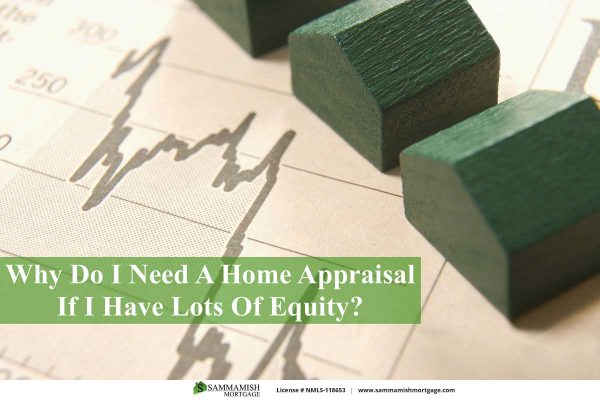No Obligation and transparency 24/7. Instantly compare live rates and costs from our network of lenders across the country. Real-time accurate rates and closing costs for a variety of loan programs custom to your specific situation.

Despite the fact that you may have a lot of equity in your home, you may still require an appraisal. The truth is that a home appraisal serves many purposes, from determining limits for a cash-out refinance to establishing the level of risk for the lender to provide you a rate/term refinance.
Home appraisals for refinances work in many ways to help and protect you, the borrower. We’ll explain when an appraisal is needed and what purpose it serves.
When you buy a new home, the appraisal makes sense for you, the borrower, to make sure you’re getting a home at least near the price you are offering. In addition, the amount you are willing to pay for the home plays into the lender’s concept of the value, as home values are largely subject to the market.
With a refinance, you already determined how much you were willing to pay for the home, so you don’t need that protection. However, with market changes after your purchase, lenders need to verify the value of the collateral they are lending against as well as the condition of the property.
Most refinances require an appraisal regardless of the equity in your home; however, there are some situations where an appraisal may not be necessary.
Two readily available exceptions for appraisals are Federal Housing Administration (FHA) and Veterans Affairs (VA) streamline refinances. When you are refinancing an existing FHA or VA loan with another FHA or VA loan you will qualify for a streamline refinance and avoid the need for a new appraisal. Both of these streamline refinance programs also offer less documentation and paperwork when compared to a regular refinance. The VA Streamline IRRRL is the best loan on the market today and definitely one you want to take advantage of if you have an existing VA loan.
Another situation where an appraisal waiver is possible is on a conforming rate/term refinance. A conforming rate/term refinance is a refinance with no cash-out with a loan amount below $417,000. Unlike the VA and FHA streamline refinances an appraisal waiver is not guaranteed. Whether or not an appraisal is required is determined once an application is run through Fannie or Freddie’s automated approval engine. If the automated engine agrees with the value entered on the application a waiver is possible.
If you are applying for a refinance in either of those categories, you should investigate whether you qualify. The best way to get answers about your unique situation is to contact a qualified loan officer.
If you are going to use funds from the home’s equity during the refinance, then the lender has an increased interest in verifying the home’s total value.
For example, you may have purchased your home for $400,000, made a down payment of $80,000, and paid $70,000 towards the principal since then. You only owe $250,000 on the loan.
In this case, you might assume you can borrow $70,000 before borrowing over 80% of the home’s value and taking on Private Mortgage Insurance (PMI) for the loan.
But what if the home is worth only $390,000 now? You could only borrow $62,000 before passing the 80% loan-to-value mark. Likewise, if the home is worth $410,000 now, you can borrow up to $78,000 without incurring PMI.
The facts about appraisals and PMI can affect a loan even if you’re not cashing out. Depending on the amount of home value fluctuation, whether you are currently paying PMI, and the size of your original down payment, you and your lender should both want to get a more accurate picture of your loan-to-value ratio.
But a great loan-to-value can also lower your interest rate. The more valuable your home is for the amount borrowed, the less risk for the lender. Less risk means potentially lower rates and different loan programs available for you, the borrower. This is true even if you’re only borrowing what you currently owe on the home.
Of course, rates will still fluctuate independent of your loan-to-value ratio, so be prepared to track mortgage rate trends as well as home values.
You can give yourself a head start by finding out what your home should be worth before hiring an appraiser. You’ll want to know whether your home is even near your target value, and you’ll be able to decide if your appraiser’s eventual decision seems accurate.
You can easily check your home’s current estimated value with our free home value report.
The home appraisal is only a small part of the larger refinance picture. It’s also crucial for you to be prepared for the refinance application, rate lock, and closing process. Learn more now by checking out our ebook Time The Market: When To Refinance And Lock A Rate.
Will you need mortgage financing to buy a home? We can help. Sammamish Mortgage has been offering a wide variety of mortgage programs and tools with flexible qualification criteria to borrowers across Washington, Oregon, Colorado, and Idaho. Please contact us today with any financing-related questions you have.


Whether you’re buying a home or ready to refinance, our professionals can help.
{hours_open} - {hours_closed} Pacific
No Obligation and transparency 24/7. Instantly compare live rates and costs from our network of lenders across the country. Real-time accurate rates and closing costs for a variety of loan programs custom to your specific situation.